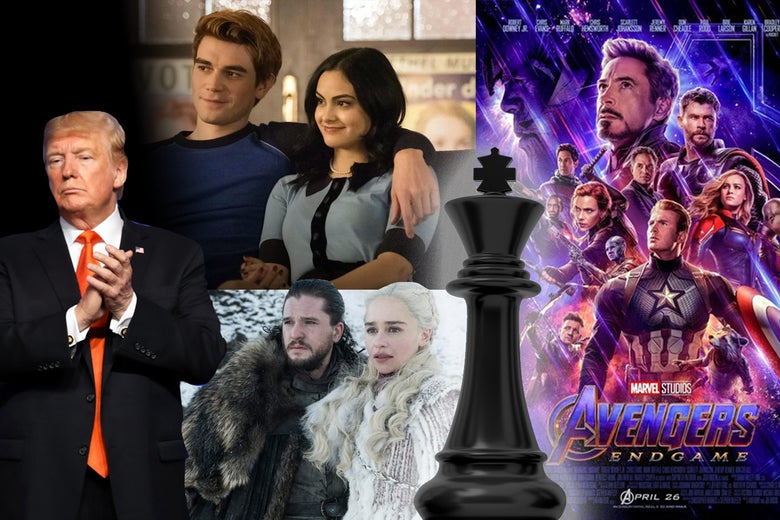How a myth about the endgame in chess seduced Avengers, Game of Thrones, and our culture.

"So is endgame now just a fancier way of saying end? Perhaps, but the uptick in this usage follows the trend of twisty and complicated narratives that has bloomed in the age of Peak TV and Peak Podcast and Peak Marvel. Why would a creator merely end his project when he can have a whole endgame? Many now aim for endings that can elegantly wrap up not just the main plot but several mysterious loose ends you didn’t even know needed a bow. It’s no longer just “Will they or won’t they?” but “What were the numbers, and what about the polar bears, and did that one kid have special powers, and how does it all fit together?” This is partly a consequence of the ever-popular puzzle-box TV show format, in which mysteries like this can animate much of a show’s plot. As Slate’s Willa Paskin once put it, it’s no longer good enough to “just watch a show. Now you have to solve it.”
Television executives dream of the kind of online chatter and speculation a show like Game of Thrones inspires, and many entertainment properties now seem reverse-engineered to encourage internet sleuthing and Reddit threads full of clue-spotting and theories. And when cracking a show’s mystery becomes more fun than the show itself—as has been true of Game of Thrones at its worst, but also could easily be said of many other puzzle-box properties—sometimes viewers keep tuning in anyway because they’re invested in the so-called endgame. They want to see where this is all going. As far as I can tell, this almost never pans out the way fans want it to. Remember Lost? True Detective Season 1? But people remain enthralled by the idea that there’s some grand plan guiding the universe, the details of which will be revealed eventually."
read article By HEATHER SCHWEDEL
How a myth about the endgame in chess seduced Avengers, Game of Thrones, and our culture.


